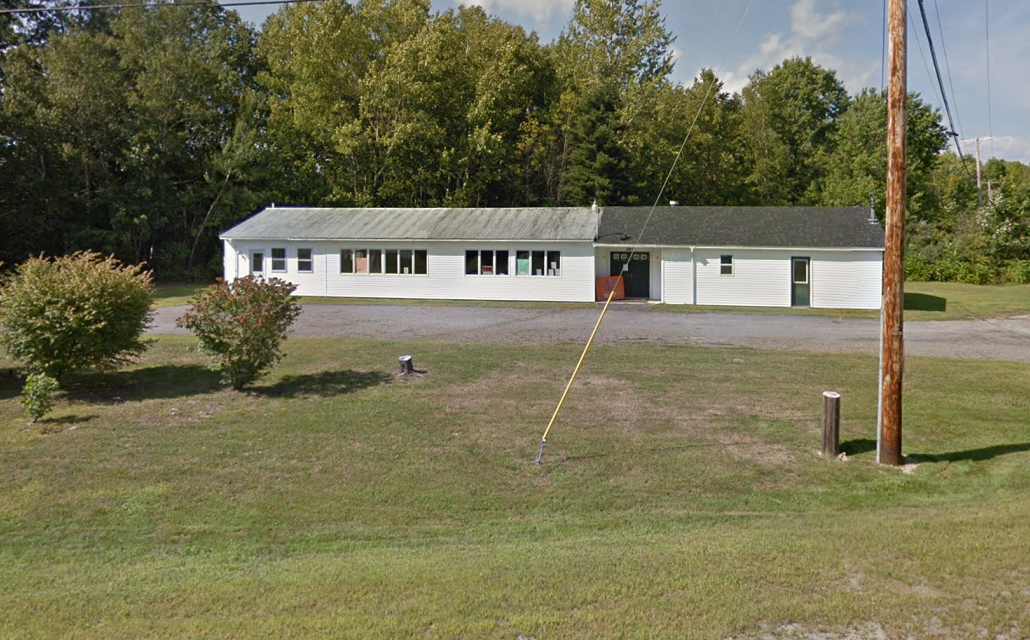Board finally approves medical marijuana business

Location of proposed medical marijuana operation on Route 3 in China. (photo from Google maps streetview)
by Mary Grow
At their Sept. 24 meeting, China Planning Board members unanimously approved Clifford Glinko’s much-discussed application to open a two-part marijuana business in South China (See The Town Line, Sept. 12 and Sept. 19).
Glinko, a licensed medical marijuana caregiver, plans to divide the building that formerly housed Mainely Trains and other businesses into two separate suites. One will be a medical marijuana growing space, the other a retail store for recreational marijuana accessories.
The building is in a Resource Protection Zone because it is close to wetlands. Agricultural operations are allowed in this zone. A new business would not be, but planning board members found retail use of the building is grandfathered, because it has been used for retail purposes up to September or October 2018.
Board members voted unanimously that the proposed businesses met all criteria in China’s Land Use Ordinance. They added five conditions to the permit, all of which Glinko readily accepted:
- The retail suite must meet Americans with Disabilities Act requirements for designation of handicapped parking and accessibility.
- The septic system must be inspected twice a year by the codes officer and, if it fails, replaced with a holding tank; Glinko said Jack Lord, who runs a soil testing business in South China, has designed a replacement. Board members believe the current system is a pre-1958 cesspool which is grandfathered and can be used until it fails.
- If the state fire marshal requires a sprinkler system, Glinko must provide evidence that the well provides enough water. Glinko has no information on the well; he said he does not expect he will be required to have a sprinkler system.
- Glinko is not to do any manufacturing in connection with his growing operation. State law defines manufacturing in two different places, board members found. They agreed manufacturing does not include basic operations like drying the plants.
- The two businesses must be clearly and completely separated, with a firewall between them and separate entrances. People working in the growing area will be allowed to use the toilet facility in the retail area.
Action on the application has been repeatedly postponed because board members and town attorney Amanda Meader found state law and regulations keep changing.
Board members also got inconsistent information. For example, a Department of Education spokesperson told Ralph Howe that Glinko’s business had to meet the 1,000-foot setback requirement from a school (Grace Academy is a private school on the south side of Route 3). Meader, working cooperatively with Maine Municipal Association legal staff, found the setback was not required for cultivation facilities.
“This has been a learning experience for all of us,” board Chairman Tom Miragliuolo commented as the Sept. 24 meeting ended with mutual thanks and praise for Meader.
The next planning board meeting is scheduled for Oct. 22.
Responsible journalism is hard work!
It is also expensive!
If you enjoy reading The Town Line and the good news we bring you each week, would you consider a donation to help us continue the work we’re doing?
The Town Line is a 501(c)(3) nonprofit private foundation, and all donations are tax deductible under the Internal Revenue Service code.
To help, please visit our online donation page or mail a check payable to The Town Line, PO Box 89, South China, ME 04358. Your contribution is appreciated!





Leave a Reply
Want to join the discussion?Feel free to contribute!